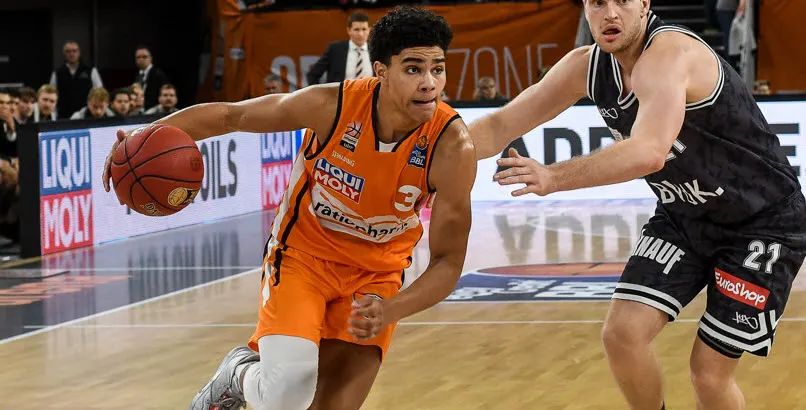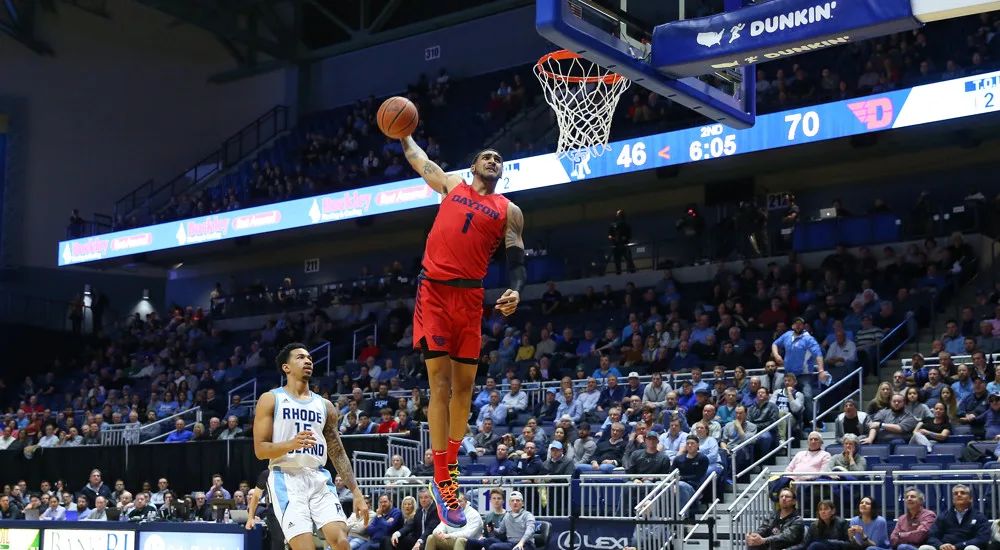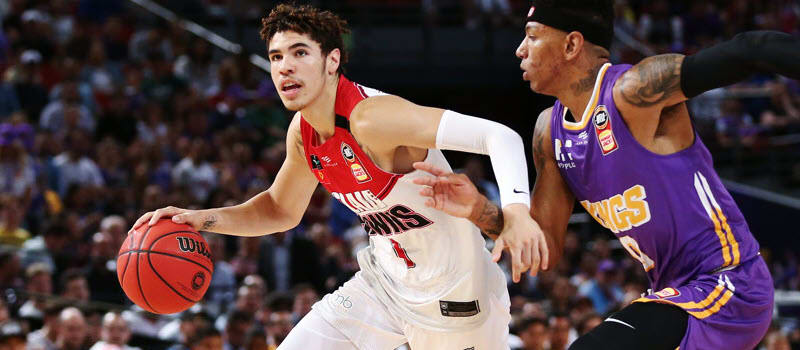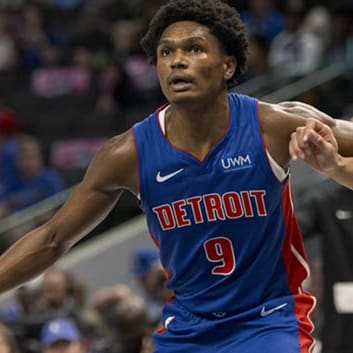This article is part of our NBA Draft series.
While the league is still in the process of sorting out its future, the 2020 NBA Draft is fast approaching. In just over three weeks, top prospects like James Wiseman, LaMelo Ball and Anthony Edwards will finally find out where they'll play next season.
Originally slated for its usual late-June timeslot, the draft was pushed back, then pushed back again before the league settled on Nov. 18 as the permanent date. In theory, the delay has given teams more time to evaluate prospects or potential trades. But the reality of the pandemic has made ordinary rituals like group workouts and one-on-one interviews much more difficult to come by. Over the last few weeks, the NBA has loosened some of its protocols, but teams are still facing significantly more obstacles than in a normal league year.
All of this comes in conjunction with the arrival of a draft class that -- pandemic or not -- carries plenty of question marks of its own. In the minds of most evaluators, the 2020 class is deep with NBA talent but devoid of the kind of prospects who can change the course of a franchise overnight. A year ago, no number of disgruntled stars or future picks would've convinced the Pelicans to trade the top pick. But this time around, both Minnesota and Golden State could look to move down, or include their pick in a deal for an established player.
All of these factors are sure to make the 2020 Draft -- which will, like the NFL Draft, take place virtually -- one of the more fascinating nights in recent NBA history.
To help answer a few important questions as Nov. 18 approaches, James Anderson dropped by to offer his take on what will happen at the top, Obi Toppin's future, mid-round prospects to monitor, and more.
Let's start at the top: If you are the general manager of the Minnesota Timberwolves, who are you taking at No. 1?
Nick Whalen: We can quibble about just how effective they'll be as a tandem, but the Wolves believe they have two foundational pieces in place in Karl-Anthony Towns and D'Angelo Russell. With that in mind, flipping the No. 1 pick for another win-now piece or two would make some sense. But if I'm the GM it would take a special deal for me to pull the trigger, and the market for the top pick isn't nearly what it would've been last year when Zion Williamson was the top prize.
Assuming Minnesota keeps the pick, LaMelo Ball is probably the best fit on paper. He doesn't solve any of the defensive issues, but he adds another ball-handler who can set up Towns and enable Russell to function off the ball. I would also take a hard look at Anthony Edwards, who I view as the prospect with the highest ceiling, if things break right. Both Edwards and Ball have more question marks than you'd prefer from a possible No. 1 pick, but Edwards is the far superior athlete, and defender, of the two. It's easy to picture Edwards having a Donovan Mitchell or Victor Oladipo-like trajectory. The problem is you don't have to squint too hard to see him as the next Ben McLemore or Emmanuel Mudiay, either.
James Anderson: I think the top two players in the class are LaMelo Ball and James Wiseman, and considering Wiseman is a true center, you can't pair him with Karl-Anthony Towns. If I'm the GM, I'm viewing D'Angelo Russell as a floor spacer and secondary playmaker in an ideal scenario, so I'm looking to get a better primary ball handler than Russell onto the roster. This makes Ball the pick. This team is actually very well constructed for Ball to have success right away while he hones his jumper over the next couple years, as Towns is the ultimate floor stretcher at the 5 and they have other competent floor spacers in Russell, Malik Beasley and Jake Layman. I'd be open to trading down or out of this draft as well, but I don't get a sense there's a great offer out there from a team looking to move up to No. 1.
Among the top three teams -- Minnesota, Golden State, Charlotte -- which would be the best landing spot for LaMelo Ball?
Whalen: No one is questioning Ball's acumen as a passer and playmaker, but he remains an incredibly volatile prospect -- especially by possible-No. 1-overall-pick standards. Ball is not enough of a lock that he'll succeed regardless of organization or developmental path. Given the three options -- Minnesota, Golden State, Charlotte -- the choice is pretty obvious. Going to Golden State wouldn't make Ball the immediate face of a franchise or guarantee him 15 shots a night, but it would set him on a path toward becoming a more complete player. And perhaps more importantly, the Warriors are the only team that would force Ball to earn his minutes early on. Golden State has title aspirations in 2021 that would supersede the organization's need to develop a 19-year-old guard, but who better to learn from than Stephen Curry and Klay Thompson?
Anderson: While I do think Minnesota is a good fit, Golden State would be an even better fit. He wouldn't develop bad defense/effort habits from watching KAT and Russell, but would instead get excellent mentorship from Stephen Curry, Klay Thompson and Draymond Green. Steve Kerr is also a vastly superior coach to James Borrego or Ryan Saunders. Kerr would presumably insist that Ball defend to get heavy minutes, which is an important mantra to instill in a young guard. Rather than having to take a lot of off the dribble threes in the halfcourt in Minnesota or Charlotte, he would get to drive, pass and spot up for wide open threes in the Warriors' motion offense.

For the teams potentially eyeing a guard in the mid-lottery, would you target Killian Hayes or Tyrese Haliburton?
Whalen: I lean toward Haliburton. Injury limited him to just 22 games at Iowa State last season, but I thought he answered most of the questions he needed to answer. After flashing onto the scene as a relatively unheralded freshman, Haliburton more than doubled his scoring average as a sophomore (6.8 to 15.2 PPG), while maintaining his efficiency from the field (50.4%) and from three (41.9%). On top of that, he handed out 6.5 assists per game and added 3.2 blocks/steals.
Haliburton may never be an NBA superstar, but he does virtually everything well. I'm by no means out on Hayes, who also has great size and can play-make, but he's easily the riskier prospect of the two, and I'm not sure his upside is any higher than Haliburton's.
Anderson: I find myself warming to Halliburton just because he doesn't really have any major weaknesses. He is a good shooter and a good passer, which is a great place to start in today's NBA. He can also guard multiple positions and he's a smart player. Guys who check all those boxes typically have long, productive careers playing for winning teams.
I think Hayes has a higher ceiling than Haliburton, but a much lower floor. His three-point shot is TBD; his ability to do anything towards the right side of the court is TBD; and his ability to check 1's or 2's is TBD. I like him as a high-upside long-term project, but if Halliburton is also on the board, I'm taking the safer player who is ready to play significant minutes right away.
There seems to be some James Wiseman-to-Golden State momentum over the last couple of weeks. Should Golden State opt to hold onto the pick, do you buy that Wiseman is the best fit?
Whalen: First of all, if I'm the Warriors I would continue shop that pick as aggressively as possible leading up to draft night. It's not the end of the world if they have to take Ball, Edwards or Wiseman, but if the entire history of NBA draft pick trades has taught us anything, it's that the unknown quantity is greater than the known.
If Wiseman is ultimately the choice, I like it for the Warriors. Rarely should a team draft for need in the top-five, but Golden State has an obvious hole at center, and Wiseman would bring significantly more upside than plugging it with a Dwight Howard or Tristan Thompson type. Wiseman isn't going to step in and shadow Anthony Davis for 40 minutes in the Western Conference Finals, but his size and athleticism are traits the Warriors have never truly had at center during the Curry-Thompson-Green era.
Anderson: Yes, I really like Wiseman's fit in Golden State. The Warriors' biggest deficiencies at this point are probably athleticism and size, and Wiseman has both in spades. Being a quality defensive center in the NBA from simply a scheme and execution standpoint is pretty tricky for rookie big men, but learning from Draymond Green could be invaluable for his defensive development. It will probably be at least a year or two before he can hold his own against Anthony Davis and Nikola Jokic, but he has the upside to eventually be a guy who gets defensive player of the year votes. Adding Wiseman would actually give the Warriors a pretty big closing five, with Andrew Wiggins at the 3 and Green at the 4. There will also be lots of lobs for Wiseman to finish in the halfcourt and in transition.
Fantasy-wise, which rookies do you see making the biggest impact next season?
Whalen: This will be a fun class to evaluate, but I wouldn't be surprised if only one or two rookies crack the top-120 next season. Ball and Edwards have the best chance to play big minutes right away, but even if they put up counting stats, there's a good chance they'll be woefully inefficient in doing so. If he lands in the right spot, Wiseman could be a high-floor contributor, as could Haliburton, who I'd be tempted to rank as my top fantasy rookie, depending on where he ends up. Beyond that group, fantasy value will be almost entirely dependent on situational factors, which won't become clear until after the draft and free agency.
Anderson: Ball and Wiseman could be top-100 fantasy players as rookies, assuming they land somewhere where they are playing over 26 minutes per game. Onyeka Okongwu's blocks and FG% could make him relevant right away if he's getting 20-plus mpg. Halliburton and Deni Avdija's potential as across the board contributors is intriguing, but playing time dependent. Hayes has a high ceiling long term if he can establish himself as a primary ball handler and shot creator, but I don't think the usage or FG% will be there for him to be viable in fantasy as a rookie.
Patrick Williams is another strong dynasty flier, but he is too raw to be valuable in 2021. Precious Achiuwa is also probably a year away from being viable but has a high blocks/steals/FG% ceiling. Anthony Edwards will be a low FG% guy who doesn't help much in steals, blocks or assists, so I wouldn't target him regardless of where he lands.

Where do you stand on Dayton's Obi Toppin?
Whalen: Toppin was my favorite player in college basketball last season, and I think he would carry a lot more hype had he been able to show out on a national stage in the NCAA Tournament. I understand the limitations on defense, but it's hard not to be enamored by Toppin's athleticism and ridiculous efficiency at the college level. With that said, the fact that he'll turn 23 in March is a bit of a concern from a developmental perspective. If I'm a team like Charlotte or Cleveland or Detroit that's nowhere near winning a playoff series, I'm not sure I want to invest in a player who could be in his late-20s by the time my organization is turned around. On the flip side, I like Toppin for teams like Chicago, Atlanta or even Phoenix, who might view him as more of a high-end role player in the long term.
Anderson: I'm pretty low on Toppin. I think he's going to get absolutely eviscerated on the defensive end in the NBA. He doesn't have the agility to check most 4's and he doesn't have the toughness or size to check most 5's. To make up for his defensive shortcomings, he needs to be a stud on offense. I get some serious Derrick Williams vibes with Toppin, where we trick ourselves into buying that the three-point shooting and athleticism will translate because of the college production. But if he's only a 34 percent three-point shooter who can't create and he loses some bounce in a couple years, what are we left with? He's also a challenging player to build around because of the defensive issues.
Which prospects generally projected outside of the top 10 are you most intrigued by?
Whalen: He could very well work his way into the top-10 by draft night, but Patrick Williams (Florida State) really jumps out on tape. His defensive potential is off the charts, and he's on the short list of guys who could immediately help a good team. Aaron Nesmith (Vanderbilt) is also on that list as a knockdown shooter with great size (6-6).
I've also kept my eye on Precious Achiuwa (Memphis), who's essentially a reverse Montrezl Harrell with better size and supercharged athleticism. He'll probably never be more than a very good role player, but Achiuwa projects as the type of player who all 30 teams would want on their roster. Lastly, I'm in on Saddiq Bey from Villanova. He's a little older (Bey turns 22 in April) and isn't a top-tier athlete, but he has the confidence, size (6-8) and maneuverability to be a dependable scorer at the pro level.
Anderson: Aaron Nesmith, Patrick Williams, R.J. Hampton, Desmond Bane and Tyrell Terry are my favorite sleepers from the middle of the first round. Nesmith is a lights out shooter in the Wesley Matthews two-way-wing mold. Williams has the size and athleticism to be able to check the best wings in the league if he can improve his lower-body strength. He also has a pretty stroke and a chance to be a guy you can't leave open from three while also being a relentless rebounder.
Hampton is an explosive driver and finisher. If he is successful in developing his shot, he could be a dynamic pick-n-roll threat. Bane can do it all on offense and defense and is the definition of plug-n-play. Terry is undersized, but has the highest upside as a NBA shooter in this class. He has those Curry/Lillard/Young tools in terms of getting his shot off from anywhere, but he's an even worse defensive prospect than those guys were, so he needs to max out offensively.












